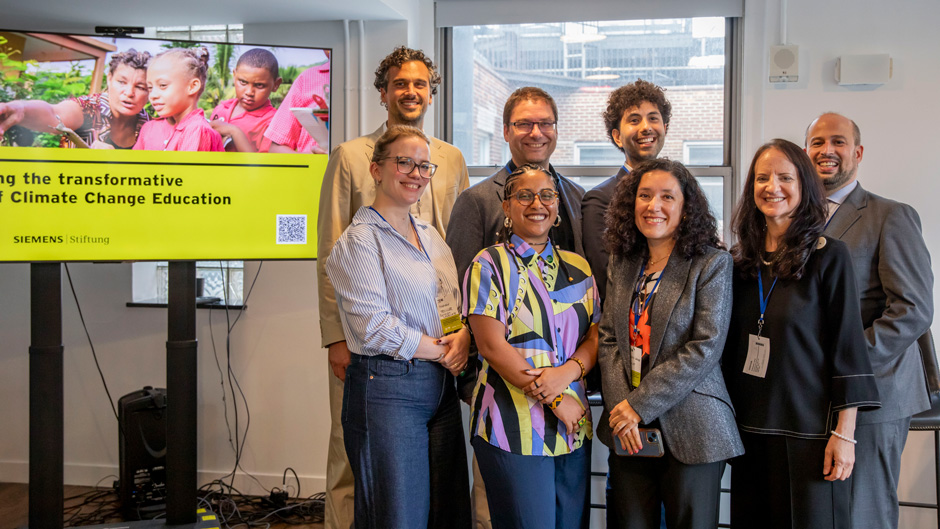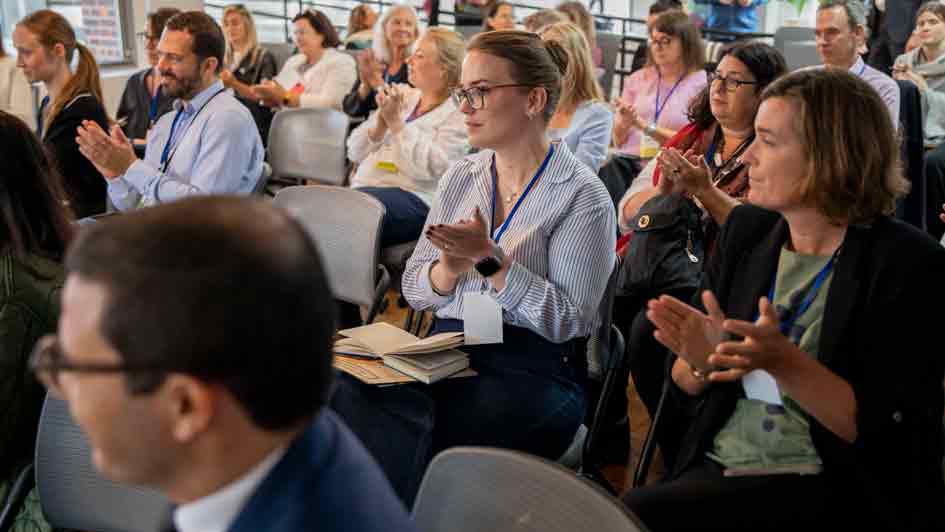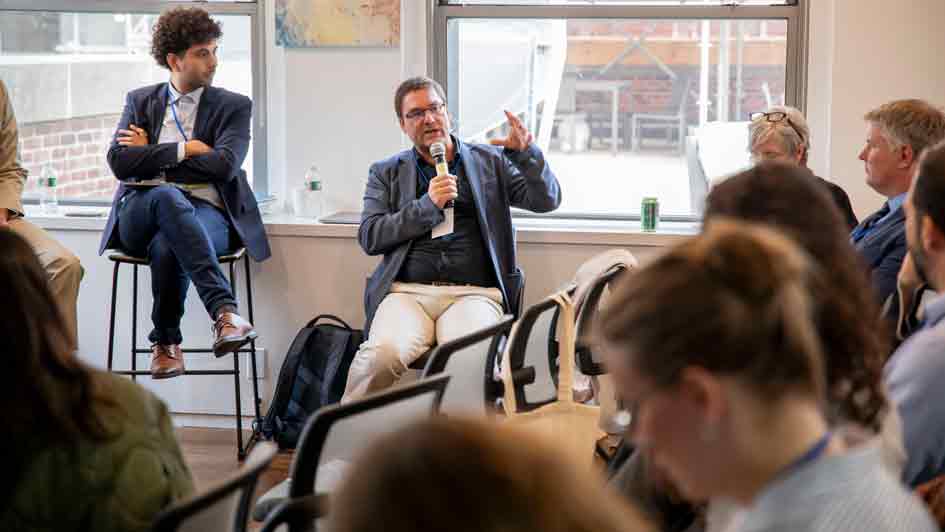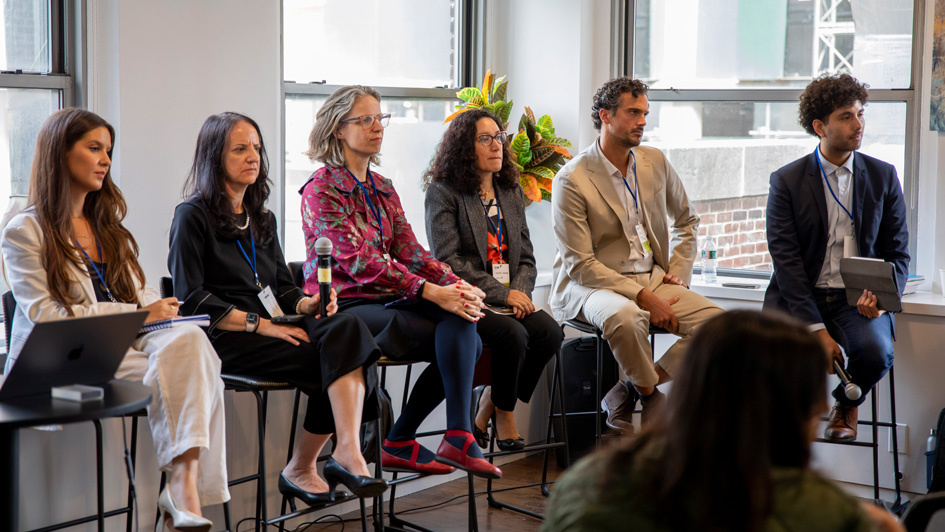Education catalyzes climate action: Invest now to safeguard people and planet

The strategic roundtable brought educators, experts, policy makers, youth, and civil society together to elevate the role of education and its integration into national climate strategies.
© Siemens Stiftung, Photographer Jamie Isaacs
The strategic roundtable: “Unlocking the transformative power of climate change education”, convened by Siemens Stiftung (Foundation) and Office for Climate Education (OCE), brought educators, experts, policy makers, youth, and civil society together to elevate the role of education and its integration into national climate strategies. Advancing Climate Week NYC 2025’s agenda, “Power On”, the participants urged the global community to join forces to consolidate efforts to secure climate finance for education to improve climate adaptation and mitigation.
A staggering 400 million students globally experienced school closures from extreme weather since 2022; ironically, a mere 1.5% of climate finance went to the education sector (World Bank). Education is not only under threat from climate change, but it is also massively overlooked in climate financing.
To narrow this gap and unify global perspectives, OCE and Siemens Stiftung share a clear framework built on years of collaboration: Co-creating learning resources, strengthening teachers’ competencies, and driving advocacy for international cooperation. Together, these efforts have significantly advanced climate change education (CCE) and built the trust needed among funders to scale impact.

Dr. Nina Smidt, CEO and Spokesperson of Siemens Stiftung says: “We are investing in the future by introducing climate change education early on. Embracing a “Glocal” approach, we co-create adaptable, free Open Educational Resources rooted in students’ local surroundings, and climate challenges, and educational realities. After successfully implementing this model in Latin America, we are now scaling it to other regions including Africa – demonstrating an agile, replicable, cross-continental approach.”
David Wilgenbus, Executive Director of the OCE, called for diversifying funding streams with improved opportunities in the NDCs (Nationally Determined Contributions): Climate targets set by countries under the Paris Agreement. NDCs outline individual plans to reduce greenhouse gas emissions (mitigation) and adapt to the impacts of climate change (adaptation).
“With less than two months to go before COP30 in Brazil – this is a critical moment to put education firmly on the climate finance agenda to support NDCs implementation for the years to come. Climate change education is increasingly recognized as a cornerstone for effective adaptation and mitigation strategies, the development of green skills, and the creation of new employment opportunities,” he added.
First indicators suggest that the collective efforts are paying off. UNICEF is working with governments and young people to embed education into national climate strategies. Dr. Ingrid Sanchez, Advisor to UNICEF said: “Momentum is building up: As of September 2025, 51 countries have submitted their new NDCs. Our analysis shows progress, 63% now include an education commitment, compared to just 43% in NDCs in 2020.”

At the roundtable, Ana Ligia Scachetti (CEO – Nova Escola, Brazil), Dr. Ingrid Sanchez (Advisor – UNICEF), Renata Koch Alvarenga (Founder – Empodera Clima), Carol O’Donnell (Director – Smithsonian Science Education Center), Djian Sadadou (Head International Relations & Communications – OCE), and Badin Borde (Deputy Head, Education – Siemens Stiftung) recommeneded moving beyond isolated perspectives to a cohesive, integrated pathway linking climate action and education.
They urged the prioritization of high-quality teacher professional development. While 95% of teachers see climate change education as vital, fewer than 40% feel equipped to teach it. Furthermore, they underscored the effectiveness of CCE in pre-bunking climate-related misinformation and highlighted the importance of translating climate negotiations into youth-friendly language to enable more active participation.

From left to right: Renata Koch Alvarenga, Carol O’Donnel, Ana Ligia Scachetti, Dr. Ingrid Sanchez, Badin Borde and Djian Sadadou.
© Siemens Stiftung, Photographer Jamie Isaacs
The program concluded with remarks by the French Climate Ambassador, Benoit Faraco, followed by Marcele Oliveira (Presidency Youth Climate Champion – COP30 Brazil), and Natalie Troeller (Head, Cultural Affairs – German Consulate General New York). The discussions generated momentum in the run-up to COP30.
Learn more about our work on CCE and access reports elucidating the points made at the roundtable:



